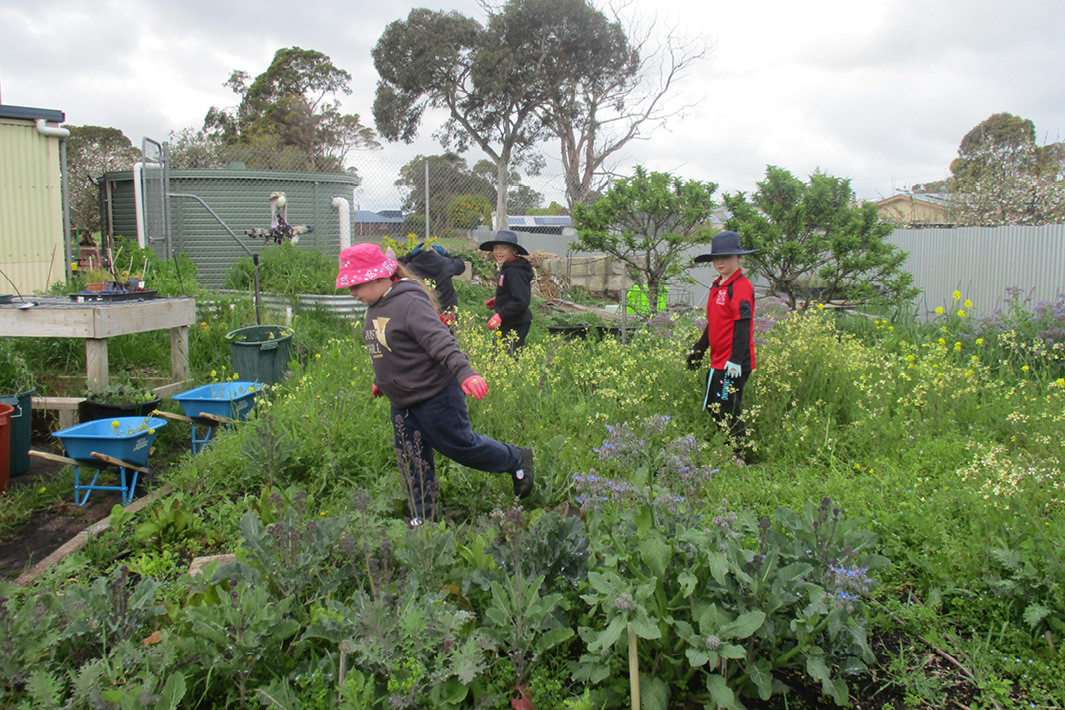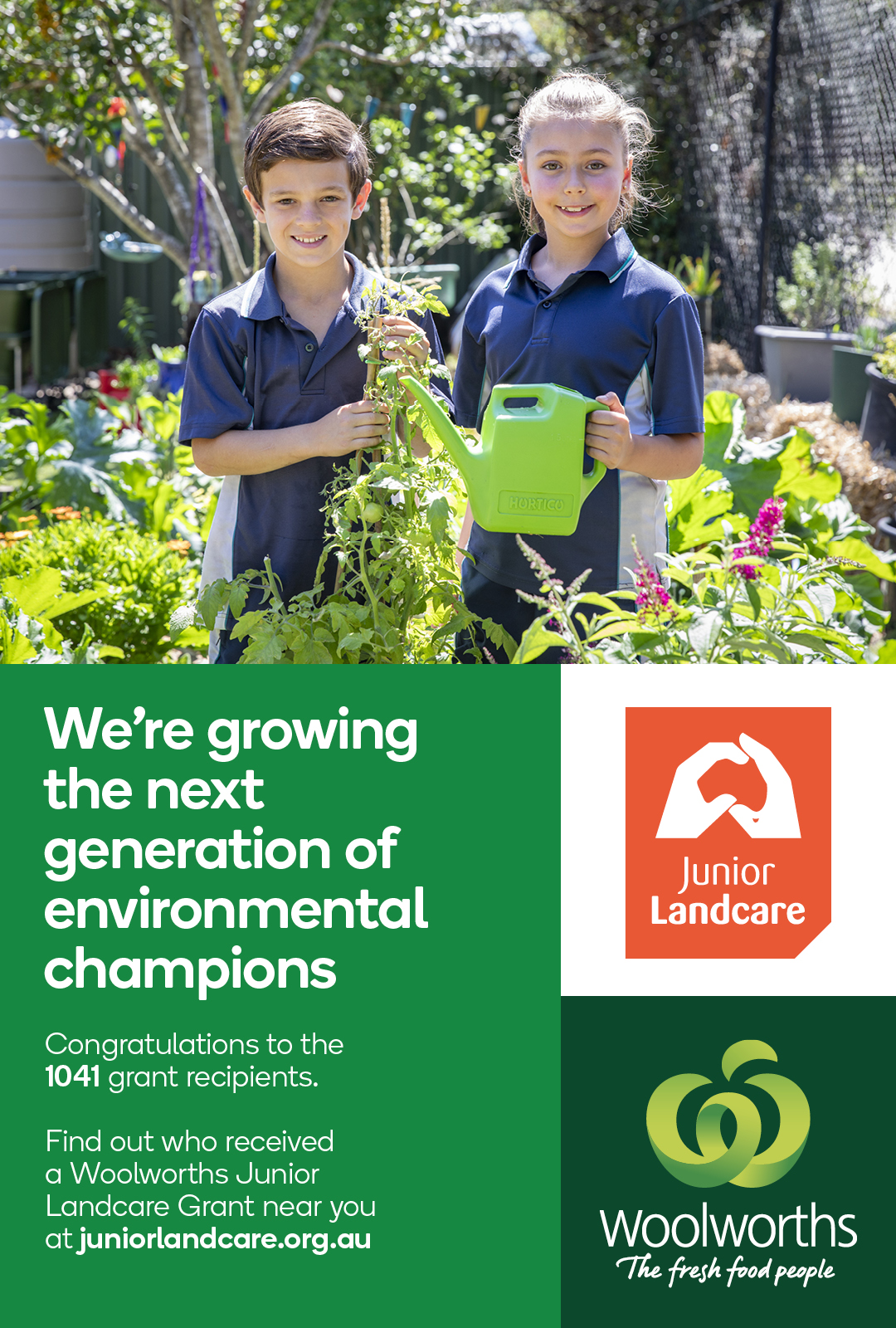CASE STUDY

Age Groups: 7-13
Grant Name:
School: Newbery Park Primary
Grant Sponsor: Woolworths
Project Overview:
Students at Newbery Park Primary School enjoyed being part of all aspects of organic vegetable production in their school garden.
Located in Millicent, South Australia, the school had an existing commitment to caring for the environment. They are partnered with Forestry SA in a biodiversity corridor project, have an on-site native plant nursery, and regularly visit a variety of local habitats to learn about native plants. Through their activities, they hope to develop the next generation of landcare advocates and volunteers.
With a Woolworths Junior Landcare Grant, the school was able to deliver a holistic garden program. The children learnt about the biological importance of insects and other animals in the garden environment. They also had first-hand experience of plant growth and life cycles, learnt about the importance of sustainability, and enjoyed cooking and eating their own produce.
Environmental Outcomes
The Newbery Park Public School organic vegetable garden project yielded several environmental benefits for animals, insects and the soil.
There was an improvement in animal and insect habitat. For example, the students left some of the vegetables to go to seed. This encouraged insect pollinators into the garden, which in turn invited more birds. The school also built an insect motel, which was made from stacked pallets and various materials attractive to insects. This became home to small garden skinks, giving students the chance to study them up close in a safe environment.
The soil in the school’s organic garden benefited from the addition of worm castings, compost heap soil and chicken manure.
Educational Outcomes
The organic garden project gave Newbery Park Primary School students an insight into sustainability. They witnessed this firsthand, through the use of worm farms that provided fertiliser for the garden – made from their classroom food scraps. Similarly, the compost heaps took their waste paper handtowels and will generate fertile new soil for their garden beds.
The students had the chance to expand their scientific knowledge by studying the many beneficial insects and pests attracted to the garden. They witnessed firsthand the life cycles that occur in the garden.
The children enjoyed the chance to share the experiences and knowledge they gained from their organic garden with one another and with their families. Students often took food and plants home to share and to help create their own gardens.
They also learnt about the importance of taking care of their own health via healthy eating choices, as well as in creating a healthy environment around them – one that they often use as a calming place to be.
Conclusion
The Newbery Park Primary School organic vegetable garden encouraged students to explore the new produce they had grown. They particularly enjoyed ‘sniff and walk’ exercises, which encouraged them to taste herbs they might otherwise avoid.
Being involved with the organic vegetable garden project gave students an immense sense of pride. It was especially important for children who enjoy hands-on experience or who lack confidence in more academic areas.
"The students feel important in the garden, they have a sense of ownership and achievement, they work hard and earn their food rewards", garden volunteer.
 Teachers & Educators
Teachers & Educators Youth or Community Groups
Youth or Community Groups